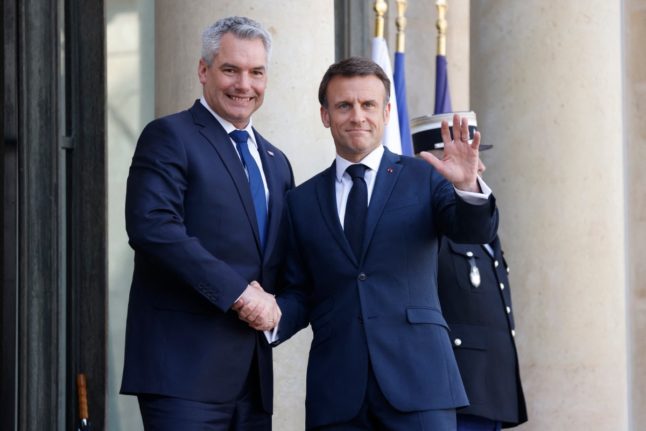Macron, 46, was pictured in March pounding a punching bag, forearms bulging, in images posted to the Instagram account of his official photographer.
Nehammer, 51, handed Macron the gloves during a one-on-one meeting, his spokeswoman said.
Im Zuge unseres Treffens hatten wir auch ein paar Minuten, um uns über unser gemeinsames Hobby, das Boxtraining, zu unterhalten. Möglicherweise finden die Boxhandschuhe, die ich @EmmanuelMacron mitgebracht habe, Verwendung bei seinem nächsten Training. pic.twitter.com/B51PXIPep4
— Karl Nehammer (@karlnehammer) April 4, 2024
Photos showed the two inspecting the gloves and Macron trying on one of them.
“In a light moment after their meeting, they spoke about boxing and their training sessions,” the spokeswoman told AFP, joking the two men did not trade blows.
“It always connects when one has the same hobbies,” Nehammer told journalists travelling with him.



 Please whitelist us to continue reading.
Please whitelist us to continue reading.
Member comments